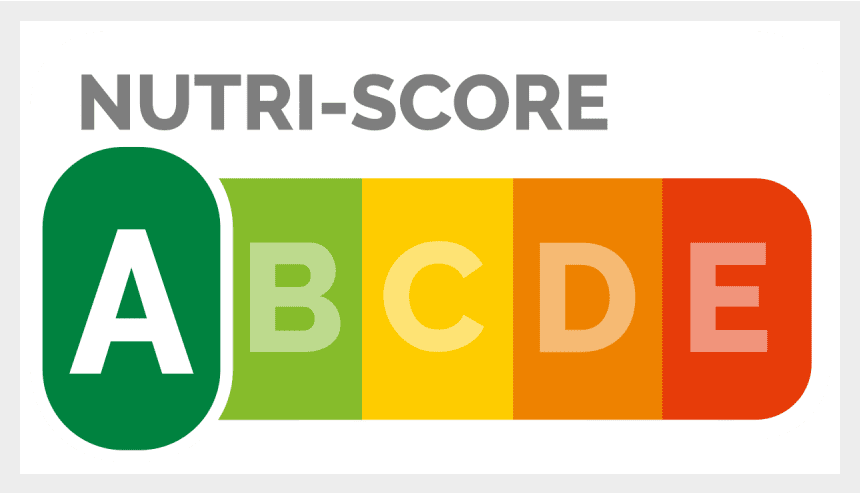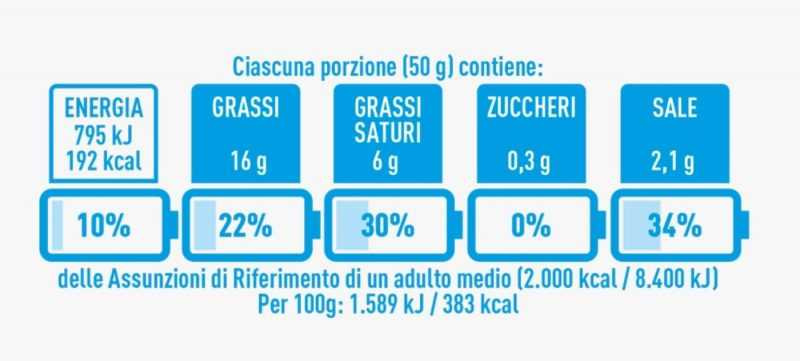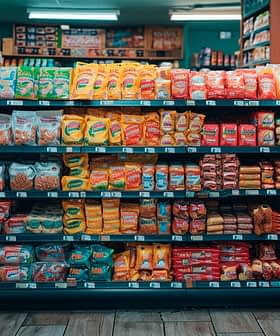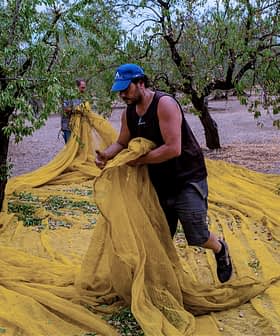Italian Politicians, Farmers Unite to Oppose Nutri-Score
In response to a pro-Nutri-Score petition signed by hundreds of scientists, Italian politicians and farmers have united in opposing to the French labeling system while promoting its alternatives.
 Matteo Salvini. Photo: European Parliament.
Matteo Salvini. Photo: European Parliament.Resistance to Nutri-Score continues to grow in Italy. Politicians, the leading farmers’ associations and the olive industry have all opposed the possible adoption of the front-of-pack labeling system (FOPL) by the European Commission.
Their often strongly-worded statements come after a petition signed by almost 300 scientists and nutritionists asked Brussels to chose Nutri-Score as the official European FOPL. The coalition believes Nutri-Score to be the most scientifically sound labeling platform.
We are facing a fierce attack (from Nutri-Score) on the Italian and Mediterranean food culture and its foundations, such as extra virgin olive oil.
“Nutri-Score represents a real danger that could compromise the Italian agrifood system,” Minister of Agriculture Stefano Patuanelli said while asking the whole Italian food industry to oppose the French-born FOPL.
“The harsh reality is that the Italian exports reach markets others long for,” Patuanelli added. “They want to use Nutri-Score to disrupt our unique talent to export products with a significant added value… To hit [Italian food exports] they are ready to attack the Mediterranean diet, which is recognized by UNESCO as an intangible part of human heritage.”
See Also:Nutri-Score UpdatesThe minister confirmed the Italian government’s commitment to actively oppose Nutri-Score and reach out to other interested countries in the E.U. to form a united front.
His remarks came during a hearing in front of the Italian Parliament in which representatives from all major political parties expressed similar concerns about Nutri-Score.
Strong political attacks have been directed at Walter Ricciardi, one of the advisors to the Ministry of Health, who signed the pro-Nutri-Score petition.
Matteo Salvini, leader of the conservative Lega Nord party in the governing coalition, asked Ricciardi to resign due to his stance on the food labeling system.
Opposition to Nutri-Score runs deep in the Italian political system, with local governments, such as Piedmont, expressing their opposition to the FOPL. Italian representatives in the European Parliament, including Paolo De Castro, also have appealed to both the political and the scientific worlds to join the fight against what he described as the “wrong system… that puts at risk our whole food heritage.”
“[It is wrong] to give votes to food, when what is needed is to offer the consumers information about the origin and the characteristics of that food to let them make more conscious choices,” he added.

Ettore Prandini, president of the national farmer association Coldiretti, also sided with Patuanelli and asked for an “urgent intervention to stop the attack on Italian national food products.”
According to Prandini, should Nutri-Score be approved, “it could even spread on a global level, directly threatening the €46 billion Italian food exports recorded in 2020.”
While Nutri-Score architect Serge Hercberg and experts such as Pilar Galan have repeatedly said that Nutri-Score is an ally of the Mediterranean diet and allows consumers to compare products belonging to the same category, Italian farmers continue to oppose it.
Promoting the Nutri-Score classification is like spreading “fake news,” according to Città dell’Olio, an association that includes Italian municipalities involved in olive oil culture.
“We must firmly oppose the fake news spread about a nutraceutical healthy relevant food such as extra virgin olive oil that the Food and Drug Administration promotes as a remedy for ensuring consumers health,” said Michele Sonnessa, president of Città dell’Olio.
“We side with Minister Patuanelli and the deputy secretary, Francesco Battistoni, to once and for all drop the Nutri-Score platform,” he added. “We are facing a fierce attack on the Italian and Mediterranean food culture and its foundations, such as extra virgin olive oil.”
Sonnessa said assigning the “Yellow C” to extra virgin olive oil is unacceptable and serves as a warning sign to consumers against purchasing the product.
However, Hercberg and Galan have long argued that the “Yellow C” is the best possible grade for the animal fats and vegetable oils category.

Nutrinform Battery
In a press release, the Italian Agricultural Confederation (CIA) made similar remarks, advocating against the adoption of Nutri-Score and for additional research into the alternative Nutrinform Battery labeling platform, which is backed by the Italian government.
The “battery labels,” as they are often called, were officially introduced in Brussels last January by the Italian government.
Nutrinform’s promoters like that the FOPL does not label foods as either good or bad, instead showing the energy intake and the nutritional values of the selected food item using a battery graphic.
In their view, this representation of the nutritional information helps consumers understand how a specific product can be part of a healthy diet. However, Hercberg, Galan and many other experts in Europe have expressed doubts about the efficacy of Nutrinform Battery and questioned its scientific background.
The European Commission is expected to select one uniform FOPL to be used across the 27-member bloc by the end of 2022.








